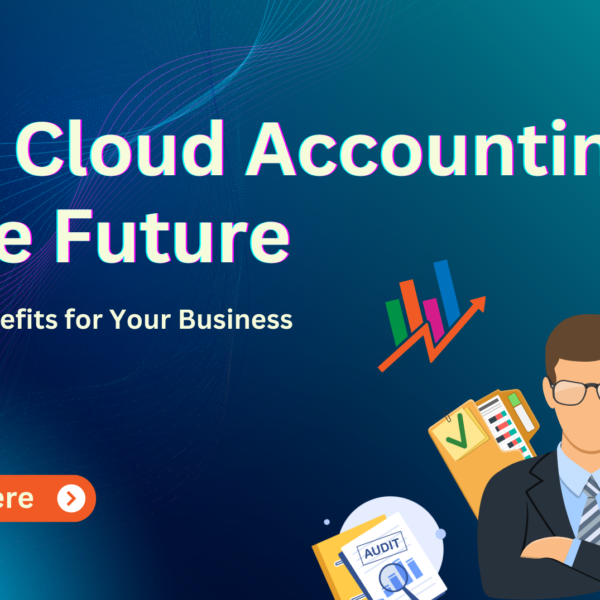
In the rapidly evolving world of technology, businesses are continually seeking innovative ways to enhance efficiency, reduce costs, and maintain a competitive edge. One of the most significant advancements in recent years is the adoption of cloud solution services. These services offer scalable, flexible, and cost-effective solutions that can transform the way businesses operate. In this article, we will delve into the myriad benefits of cloud solution services, explore various types of services available, and discuss how to choose the best provider for your needs.

Cloud Solution Services
Understanding Cloud Solution Services
Cloud solution services refer to a range of services delivered over the internet, providing businesses with access to software, storage, processing power, and other computing resources. Unlike traditional IT setups, which require significant investment in hardware and maintenance, cloud services operate on a pay-as-you-go model, allowing businesses to scale their operations according to their needs.
Key Benefits of Cloud Solution Services
- Scalability and Flexibility: One of the most compelling advantages of cloud solution services is their ability to scale. Whether you are a small startup or a large enterprise, cloud services can grow with your business. You can easily adjust your usage and storage needs without the need for significant upfront investments.
- Cost Efficiency: Cloud services eliminate the need for expensive hardware and reduce the costs associated with maintenance and upgrades. With cloud computing, businesses only pay for what they use, which can lead to substantial cost savings.
- Accessibility and Collaboration: Cloud solution services enable employees to access data and applications from anywhere in the world, fostering better collaboration and productivity. This is particularly beneficial for remote teams and businesses with multiple locations.
- Security and Compliance: Leading cloud service providers invest heavily in security measures to protect data from breaches and cyber threats. Additionally, many providers offer compliance with industry standards and regulations, ensuring that businesses meet necessary legal requirements.
- Disaster Recovery and Backup: Cloud services provide robust disaster recovery and backup solutions, ensuring that data is always available and can be quickly restored in case of an emergency.
Types of Cloud Solution Services
Cloud services can be broadly categorized into three main types: Infrastructure as a Service (IaaS), Platform as a Service (PaaS), and Software as a Service (SaaS).
Infrastructure as a Service (IaaS)
IaaS provides virtualized computing resources over the internet. Businesses can rent virtual machines, storage, and networks, enabling them to run applications and store data without investing in physical hardware. This is ideal for businesses that need flexible and scalable computing resources.
Platform as a Service (PaaS)
PaaS offers a complete development and deployment environment in the cloud. It allows developers to build, test, and deploy applications without worrying about the underlying infrastructure. PaaS solutions often include development tools, database management systems, and middleware, streamlining the development process.
Software as a Service (SaaS)
SaaS delivers software applications over the internet on a subscription basis. This eliminates the need for businesses to install and maintain software on their own computers. Popular examples of SaaS include email services, customer relationship management (CRM) systems, and enterprise resource planning (ERP) software.
Choosing the Right Cloud Solution Services Provider
Selecting the right cloud solution services provider is crucial for maximizing the benefits of cloud computing. Here are some factors to consider when making your choice:
- Reputation and Reliability: Look for providers with a strong track record of reliability and customer satisfaction. Reading reviews and case studies can provide insights into a provider’s performance and reliability.
- Security Measures: Ensure that the provider has robust security protocols in place, including encryption, firewalls, and intrusion detection systems. Additionally, check if the provider complies with industry standards and regulations.
- Cost Structure: Compare the pricing models of different providers to find one that offers the best value for your business. Consider both the initial costs and the long-term expenses associated with scaling and usage.
- Support and Service Level Agreements (SLAs): Evaluate the level of support offered by the provider, including response times and availability of technical assistance. SLAs should clearly outline the provider’s commitments to uptime and performance.
- Integration and Compatibility: Ensure that the cloud services can integrate seamlessly with your existing systems and applications. Compatibility with your current infrastructure can save time and reduce complexity during implementation.
- Scalability and Performance: Choose a provider that can accommodate your business’s growth and performance needs. The ability to quickly scale resources up or down is essential for maintaining efficiency and agility.
Real-World Applications of Cloud Solution Services
Cloud solution services are transforming various industries by enabling innovative applications and enhancing operational efficiency. Here are some examples of how different sectors are leveraging cloud services:
Healthcare
Healthcare providers are using cloud services to store and manage patient records securely. Cloud-based electronic health record (EHR) systems enable healthcare professionals to access patient information from anywhere, improving patient care and collaboration.
Retail
Retailers are leveraging cloud services to enhance their e-commerce platforms, manage inventory, and analyze customer data. Cloud-based solutions provide the scalability needed to handle high traffic during peak shopping periods.
Finance
Financial institutions are using cloud services for data analytics, fraud detection, and customer relationship management. Cloud computing allows banks to process large volumes of transactions quickly and securely.
Education
Educational institutions are adopting cloud services to deliver online courses, manage student records, and facilitate collaboration among students and faculty. Cloud-based learning management systems (LMS) provide a flexible and accessible learning environment.
Future Trends in Cloud Solution Services
The future of cloud solution services is bright, with several trends set to shape the industry in the coming years:
- Edge Computing: As the need for real-time data processing grows, edge computing will become more prevalent. This involves processing data closer to the source, reducing latency and improving performance.
- Artificial Intelligence and Machine Learning: Cloud services are increasingly integrating AI and machine learning capabilities, enabling businesses to leverage advanced analytics and automation.
- Hybrid and Multi-Cloud Strategies: Businesses are adopting hybrid and multi-cloud strategies to optimize their cloud usage and avoid vendor lock-in. This involves using a mix of public and private clouds, as well as multiple cloud providers.
- Increased Focus on Security: With the rise in cyber threats, cloud service providers will continue to enhance their security measures. This includes advanced encryption, zero-trust security models, and continuous monitoring.
Conclusion
Cloud solution services are revolutionizing the way businesses operate, offering unparalleled scalability, cost-efficiency, and flexibility. By understanding the different types of cloud services and carefully selecting the right provider, businesses can unlock the full potential of cloud computing. As technology continues to evolve, staying informed about the latest trends and advancements in cloud services will be crucial for maintaining a competitive edge.
For more interesting blogs click here.











